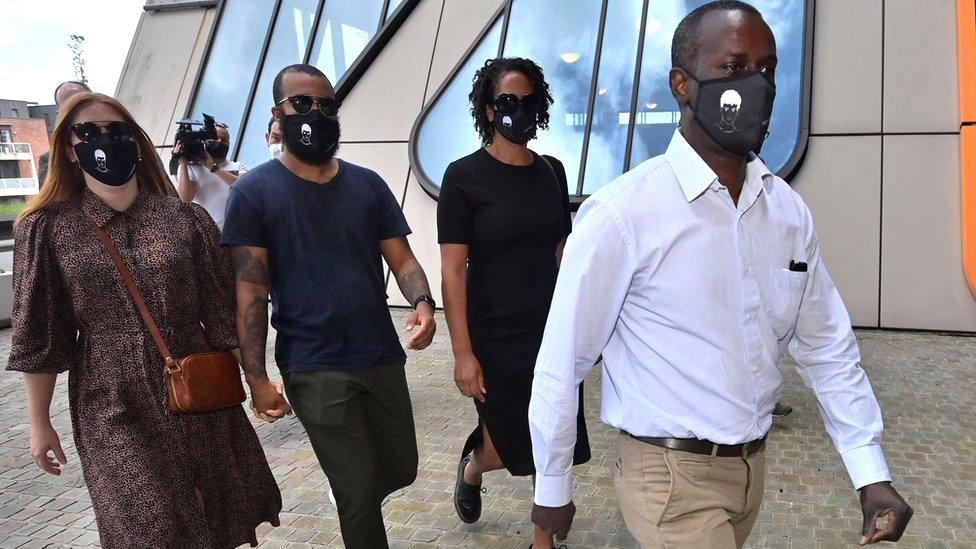Belgian students face trial over initiation death
- Published

The father of Sanda Dia, Ousmane (R), has been present at a number of court sessions in the city of Hasselt
Eighteen former members of an elite Belgian university fraternity should face trial over the death of a black student in 2018, a court has ruled.
Prosecutors say the now dissolved white Flemish group Reuzegom subjected Sanda Dia to a two-day initiation ordeal that led to the 20-year-old's death.
It is alleged the fraternity at the university in Leuven forced the student to drink large amounts of alcohol and stand in cold water for hours.
The suspects are likely to appeal.
The decision to refer the case to a criminal court means they now face several charges as a group including manslaughter, deliberately administering harmful substances, degrading treatment and culpable negligence.
Mr Dia, whose father Ousmane was born in West Africa, is said to have undergone an initiation process determined by members of the fraternity in early December 2018.
The engineering student was allegedly forced to drink a litre of gin and swallow fish oil and made to stand in an icy pit latrine.
When Mr Dia's health began to deteriorate, the fraternity members took him to a hospital in Leuven, about 25km (15 miles) east of Brussels.
He later died after reportedly suffering from hypothermia and organ failure.
Prosecution lawyer Sven Mary described Thursday's decision by the court in the city of Hasselt as "a relief for the family".
"It's been a year that has seen the defence lawyers trying to buy time by any means," he told the AFP news agency.
The suspects, who each face several years in prison if found guilty of the charges in a criminal court, have 15 days to appeal against the decision.
If they appeal, the case will be transferred to Belgium's Court of Appeal, where judges will then determine if sufficient evidence exists for criminal charges to be brought.